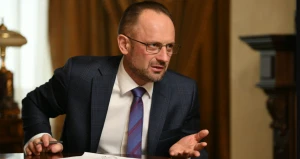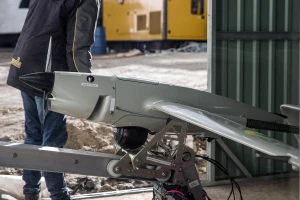
Benefits of Ukraine’s EU integration are obvious — these are tangible social and economic transformations. MEP Paulius Saudargas tells Espreso about prospects of Ukraine's accession to EU
Paulius Saudargas, a Member of the European Parliament, Vice Speaker of the Seimas of Lithuania (2020-2024) and one of the leading figures supporting Ukraine in Lithuania and the EU, spoke about his country's experience on the way to the European Union, the benefits of European integration and the necessary reforms. The MEP is convinced that Ukraine is a strong player, and people will feel a number of positive changes
Ukraine became an EU candidate in June 2022. Two years later, in June 2024, official negotiations on our country's accession to the EU began. This is the penultimate and most difficult stage of European integration. Ukraine's path to the European Union involves a number of reforms. On December 17, the EU's General Affairs Council, which brings together ministers from all 27 member states, commended Ukraine's efforts to implement reforms and noted significant progress.
Espreso has talked to MEP from Lithuania Paulius Saudargas about what the state should change and in what way the lives of Ukrainians are expected to change after the implementation of reforms and accession to the EU. An experienced Lithuanian politician and friend of Ukraine told us how he assesses Kyiv's progress, what he can advise based on his country's experience, why Ukraine should develop green energy and fight corruption.
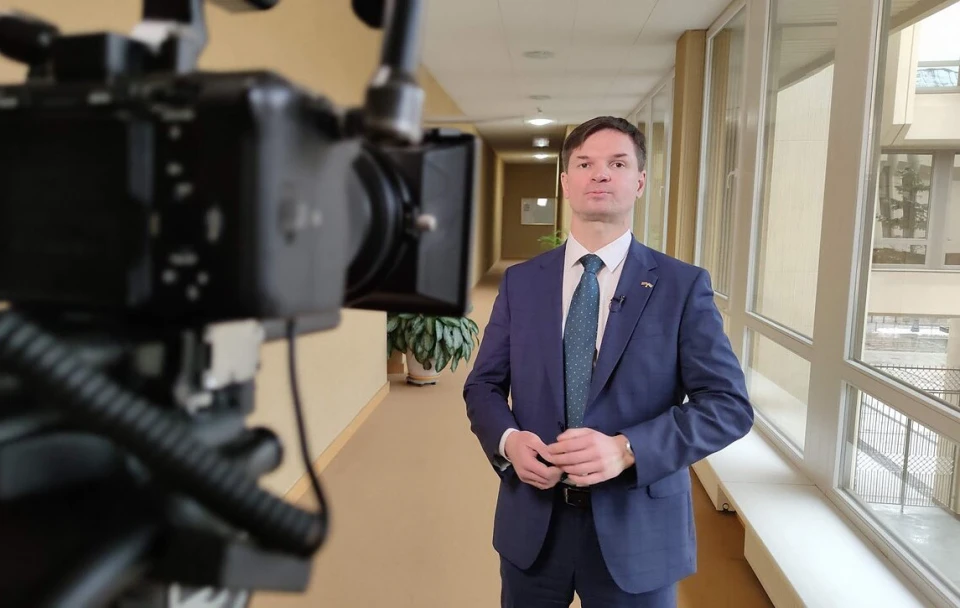
Photo: www.lrt.lt
How would you assess Ukraine's EU integration process? What are, in your opinion, the main challenges and gains?
Ukraine is the only country undergoing the EU integration process while simultaneously fighting a war and resisting Russian aggression. Achieving the stage of opening accession negotiations under these extraordinary circumstances is already a significant milestone.
The nature of EU enlargement requires Ukraine to implement substantial reforms. The focus is currently on the fundamentals cluster. This cluster prioritizes reforms in justice, freedom, and security, as well as enhancing government transparency and efficiency. While these areas are particularly challenging, progress here will lay the foundation for the successful implementation of other clusters and Ukraine's reconstruction efforts.
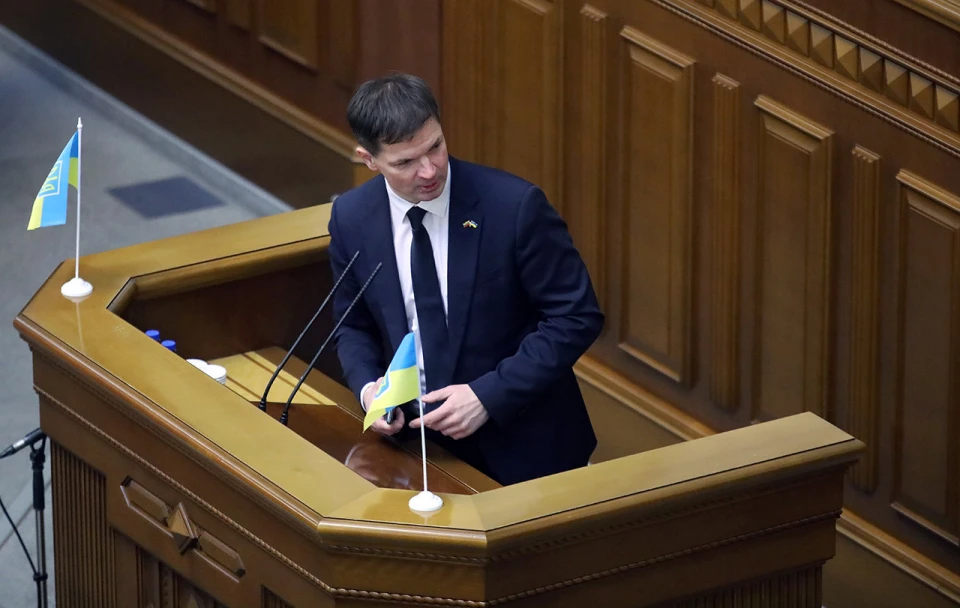
Paulius Saudargas in the Verkhovna Rada of Ukraine on February 16, 2022, photo: Getty Images
For reference: The negotiation process for Ukraine's accession to the EU has a number of peculiarities. In particular, it involves a cluster of fundamental reforms that is the first to be opened for negotiations and the last to be closed. Thus, reforms in this cluster determine the overall dynamics of the negotiations. The fundamental cluster actually reflects the principles on which the European Union is based: democracy, the rule of law, human rights, economy and competitive market, stability, and prosperity. However, this cluster has a peculiarity: most of its components do not have specific EU legal acts that could be used to approximate Ukrainian legislation. That is why the fundamental cluster is considered one of the most difficult. After all, reforms are implemented individually in all countries, taking into account the specifics of legal systems based on international standards. While other reforms are implemented on the basis of specific EU acts. Ukraine is embarking on this path during the war and will have to take into account its challenges and impact on democratic reforms. Formally, the cluster has not yet been launched, as Ukraine must first prepare three reform roadmaps. Kyiv and Brussels plan to start the next stages of negotiations on specific clusters in 2025.
Progress continues at a strong pace, positioning Ukraine to open the first cluster and advance to the second out of six very soon. However, the process requires unanimous approval by the European Council to open each cluster. It is essential that we in the European Union ensure consensus and demonstrate the political will to support Ukraine's progress as it becomes ready to move forward.
What are the main lessons that Ukraine can learn from the Lithuanian experience joining the EU?
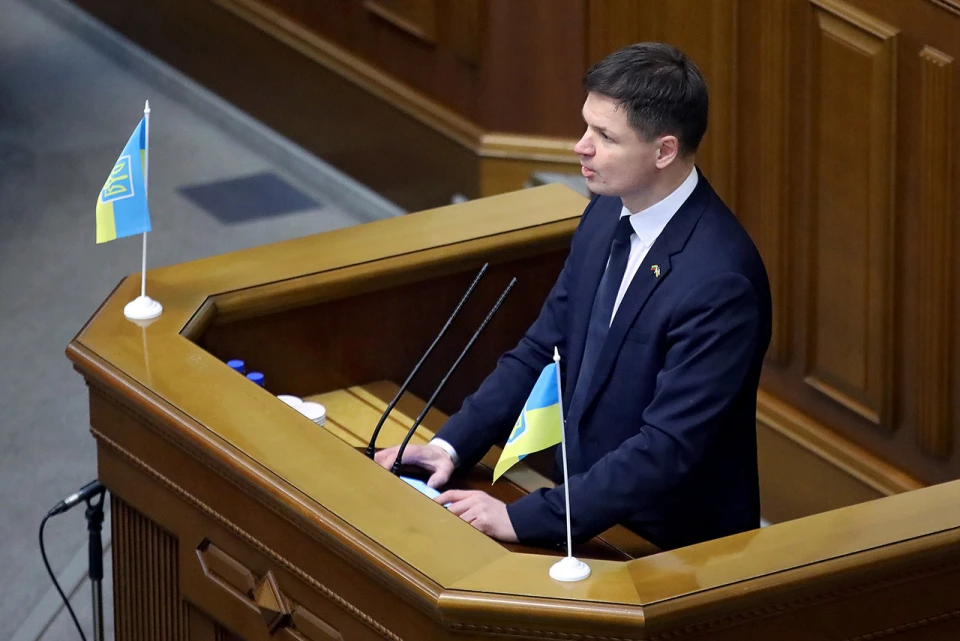
Paulius Saudargas in the Verkhovna Rada of Ukraine on February 16, 2022, photo: Getty Images
20 years after Lithuania joined the EU, we reflect on how many once considered it unrealistic. Our experience shows that strong belief and hard work bring results. For Lithuanians, EU enlargement was about choosing freedom and leaving behind the Soviet burden. Like Ukraine today, it was a civilizational choice, a bold statement of independence and democracy. On March 11, 1990, we declared that re-establishment of Lithuania's independence, signed the Association Agreement in 1995 and became EU member by 2004.
Like today, Russia used hybrid and military tactics to pull Lithuania back under its influence, aiming to crush our aspirations for freedom. But the EU's stance was firm. It was a two-way process. The EU wanted new members, and we had to do our homework. Lithuania undertook tough reforms, including abolishing the death penalty, for example, or decommissioning the Ignalina nuclear power plant and enacting land reforms.
Lithuania was among the first to support Ukraine's European integration ambitions in 2014. Unfortunately, that momentum was lost and Ukraine was not given a clear membership perspective. Now, it is the EU's responsibility to step up, prepare for enlargement internally, provide a clear strategy and support candidate countries with consistent methodology and resources. At the same time, Ukraine must deliver key reforms and be fully prepared.
There are no shortcomings of membership. It is a merit-based process. Lithuania definitely faced challenges in implementing certain reforms, but as we see now, EU membership brings unique opportunities for growth and development.
Ukrainians are really welcome to copy-paste our experience with the EU integration. We as a nation are really close historically, ethnically, as Lithuania's case could be taken as a role model for Ukraine.
You are a member of the European Parliament's Committee on Economic and Monetary Affairs. Given Lithuania's path to EU membership, how can Ukraine integrate into the EU’s single economic space without major economic disruptions?
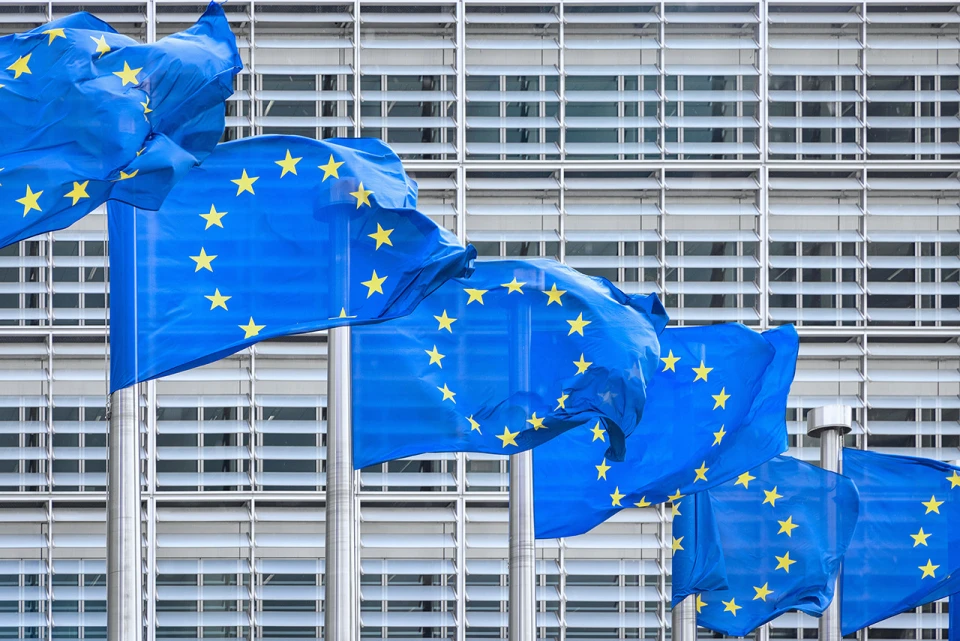
Illustrative photo, source Getty Images
Participation in the European Union's internal market with its 500 million consumers has been a key driver of Lithuania's economic growth. While the reforms necessary for integration are undoubtedly challenging, the EU has been a vital partner providing support through cohesion funds and regional development projects that modernize infrastructure, enhance science and innovation, and strengthen competitiveness.
For Ukraine, joining the single market will clearly demonstrate the tangible benefits of EU membership growth, job creation, and improved quality of life. It is the shared responsibility of the EU and its allies to allocate the resources needed for Ukraine's reconstruction and recovery.
Through this joint effort, it will be possible to ensure that Ukraine can boost its GDP and forge strong ties with EU industries, fostering prosperity and economic strength.
We would like to explain to ordinary Ukrainians how their lives will change during the EU accession process and after Ukraine joins the EU. From your personal experience, what did change for you in your everyday life when Lithuania joined the EU?
Firstly, what I experienced is the freedom of movement within the EU. This allowed many Lithuanians to work and study abroad. For example, over 42,000 students have participated in the Erasmus+ program, reflecting enhanced educational opportunities. I was one of the students, I had a possibility to study biophysics in Amsterdam's university for 3 years.

Illustrative photo, source Getty Images
But for the rest of the people, the changes are obvious. For example, since joining the EU in 2004, Lithuania has experienced significant economic and social transformations. For example, GDP per capita rose from roughly EUR 6,000 in 2004 to more than EUR 23,000 in 2022. By 2023, the average salary reached almost EUR 2,000, compared to about only EUR 431 at the time of EU accession in 2004.
I think numbers speak for themselves. In total, Lithuania received around 18 billion in European structural and investment funds from 2004 till 2020. These funds supported infrastructure, research, energy independence and education.
You are also a member of the European Parliament's Committee on Industry, Research, and Energy. So, what energy reforms, in your opinion, should Ukraine prioritize during the EU accession process?
The Lithuanian experience has shown that the best way to ensure energy stability is to decouple from Russian energy supplies. We were the first in Europe to disconnect from Russian resources. Why? Because we have been preparing for decades. We had our plan, our strategy for energy independence. The whole EU must reduce its dependency on Russian oil and gas, and secure alternative supply rules. This goes in parallel with our green ambitions, getting rid of fossil fuel in general. Cooperation with Ukraine in this area offers great opportunities for both sides, particularly in green energy and hydrogen. Ukraine can contribute to Europe's energy security. However, certain reforms are needed to achieve this.
Ukraine should focus on implementing the EU demands in the energy sector, further liberalizing the electricity and natural gas markets and strengthening the independence of the energy regulator. These reforms are necessary to align with EU regulations and open the door to potential projects and renewables of distributed generation. Investment in green energy, wind and solar, in particular, was our pathway.
In 2023, renewable energy sources generated 63% of the country's electricity, with wind contributing 32%, solar 7% and biomass 15%. This growth of green generation, supported by government incentives and streamlined regulations, has made Lithuania a leader in the Baltic region's clean energy transition. Lithuania aims to achieve 100% renewable electricity consumption by 2030.
Taking fast steps is not so easy in the energy sector because it's a system, it should be developed, it cannot appear in a minute. Russia’s energy blackmail has always been there. It takes time to get rid of Russian dependency overall in Europe, and only then we can help with other countries which are on the accession procedure.
Speaking about human rights and democracy standards, what can Ukraine learn from the Lithuanian experience in meeting the EU requirements?
A systematic, transparent reform of judicial and anti-corruption institutions is crucial to meet EU standards. Ukraine should continue focusing on judicial independence, particularly ensuring that anti-corruption courts are free from political pressure. Lithuania fosters an active cooperation with civil society and ensures freedom of the press, which serves as watchdogs for democratic processes and safeguarding human rights.
In Ukraine, NGOs are pivotal in monitoring reforms and advocating. It is important to give them access to registers of relevant data despite the war. Transparency and inclusivity of actors is at the core, and I'm sure Ukraine has a very strong national team to advance in this direction.
To conclude, the candidate country must preserve the core values of democracy, the freedom of speech, the free, transparent and competent media, strong and active civil society. I was in Ukraine many times. I think that I know Ukraine a little, and I think that despite chaos and instability because of the war, of course, but Ukrainians preserve these core fundamentals of democracy. Please stay on course.
You said that you had been in Ukraine many times. When did you understand that Ukraine is ready to join the EU?
I was always sure that Ukraine is ready to join the EU. The problem is that the EU is not ready to accept Ukraine. So, I really wish all the best, and I think that Ukrainians are doing tremendous jobs, but just keep on doing this.
Of course, you are living through dramatic times of war. At the beginning of the full-scale invasion the world was surprised by the way that Ukrainians are holding their ground, because the intelligence services of the United States, of Great Britain, didn't predict that. They said that in three days Ukraine will fall, but three days passed, three weeks passed, three months passed, and now we have the third year of the war, and Ukrainians are still holding their ground. This is a really strong message to the world that you want to be free, you want to be independent, and you want to be pro-European.
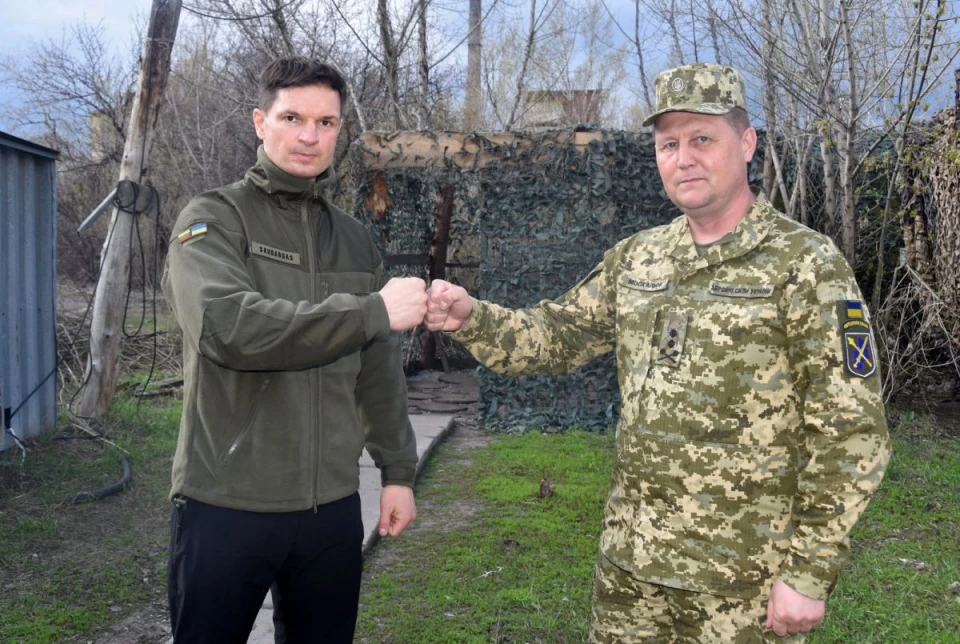
Paulius Saudargas in Avdiivka, April 23, 2021, photo: armyinform.com.ua
Do you see any risks for the EU if Ukraine's accession process is speeded up because of the ongoing war?
The process is merit-based, and this is not just a technicality. It's a reflection of the values, treaties, and principles that bind us together. The speed of Ukraine's accession will depend on the quality and pace of its reforms.
But the EU stands ready to support Ukraine every step of the way. The European Commission, under its new leadership, is fully committed to an ambitious and clear roadmap, ensuring that every step of the negotiations is marked by a structured and comprehensive dialogue.
The necessary homework is not complete, but the potential is there for Ukraine to succeed. If Ukraine remains steadfast and focused on reforms, the EU must be prepared to grant access to a single market and offer full integration. Both sides must work in partnership to achieve this goal in the shortest possible timeframe. There is goodwill on both sides, and together we will make it happen.
What steps did Lithuania take to improve relations with its neighboring countries, and how can Ukraine use these steps to build stronger ties with the EU?
Ukraine is undoubtedly a strong player in the region, making significant advances in various sectors, including the digitalization of services, defense innovations, and supporting neighboring countries like Moldova in their fight against Russian hybrid aggression.
Regional projects will boost common security, enhance interconnectivity, and maximize the benefits of EU programs. Ukraine's integration into the EU as a large and strategically positioned country will create significant economic opportunities and strengthen ties with regional partners.
During the last decades, Lithuania had only some issues with neighboring Poland. 30 years ago, we signed a bilateral treaty on friendly relations and good neighborly cooperation, mainly about how we should tackle several questions and problems. We are in close relations since, on all levels of administration, presidential, governmental, parliamentary. I myself was leading the Lithuanian-Poland Parliamentary Assembly. All the questions could and should be solved via an intensive dialogue. We all have subtle and sometimes unresolved questions in complicated history. But the only answer is a democratic and open dialogue and cooperation.
How should we communicate with Ukrainians and explain the benefits of the EU integration process? Russia wages an information war as well, and Ukrainians are among the biggest targets for Russian propaganda.
Ukrainians are fighting every day and paying with their own lives for the chosen pro-European course. So, there is no doubt that Ukrainians support the European integration idea. However, the benefits of integration into the EU should be explained to the society.
And then we can expect the strong mandate and support from the society for the necessary reforms. These benefits are easy to measure. Just take the economic parameters, for example, of the same decade. The numbers speak for themselves. I already told you about GDP, about the average salary. These are very simple examples, and the society will understand in a moment.
So, fostering innovation, supporting small and medium-sized enterprises, and engaging youth are at the heart of building a successful European Ukraine. Ukraine has immense potential, and the right people to make this vision a reality. It is important to support reforms from the ground up, focusing on capacity-building and grassroots development.
The knowledge about programs, opportunities, procedures of the European Union must be available for the future.
What can Ukrainian society do to improve Ukraine's international image during the European integration process?
Ukraine has built a strong track record on reforms, proving that its institutions are capable of delivering on their promises. But it is essential to increase communication about key achievements. We have to make Ukraine's voice heard across EU countries, highlighting success stories in innovation and effective investigations, anti-corruption reforms.
Everyone agrees that Ukraine is fighting a heroic war against the aggressor, but also the image of Ukraine sometimes is overshadowed by corruption.
Do Ukrainians do enough to tackle this particular problem? Even in the European Parliament, I hear colleagues raising this question, and this should be addressed.
For reference: Over the past 10 years, Ukraine has managed to create an anti-corruption infrastructure, adopt legislation and implement public procurement reform thanks to joint efforts of the government and the public sector. In particular, from 2014 to 2019, a functioning system of anti-corruption bodies was created: The National Anti-Corruption Bureau of Ukraine (NABU), the Specialized Anti-Corruption Prosecutor's Office (SAPO), the High Anti-Corruption Court (HACC), the National Agency on Corruption Prevention (NACP), and the Asset Recovery and Management Agency (ARMA). Ukraine has also introduced various anti-corruption tools: mandatory electronic asset declaration, the Prozorro public e-procurement system and the Prozorro.Sale system for the sale and lease of public property; state registers were opened, the web portal for the monitoring of the use of public funds was launched, etc. In 2023, the new High Council of Justice and the High Qualification Commission of Judges also became operational; new measures to prevent and combat money laundering were introduced; legislation on national minorities and media were updated. European integration motivates Ukraine to continue fighting corruption even during the war and demonstrate progress. This, in particular, is shown by the Corruption Perceptions Index (CPI), in which Ukraine received 36 points out of 100 in 2023, adding 3 points. Ukraine now ranks 104th out of 180 countries.
It's essential to ensure that every EU citizen understands how far Ukraine has progressed, and the benefits its integration will bring in strengthening the EU as a whole. At the same time, Russia continues its hybrid campaign against democracies worldwide. Supporting Ukraine in being vocal about its progress is a key step in countering far-right disinformation and dismantling Russian narratives.
Together we can showcase Ukraine as an example of resilience, reform, and partnership.
The material was published as part of the “Democratic Integration, Resilience, and Engagement” (Ukraine-DARE) project, implemented by Democracy Reporting International (DRI) in cooperation with the Reanimation Package of Reforms coalition and the Center for Political and Legal Reforms with the financial support of the Federal Foreign Office of Germany. The project aims to facilitate the approximation of Ukrainian legislation to the EU norms, build a dialogue on the challenges to democracy in Ukraine during the war, and promote civic engagement of young people. The opinions and views expressed in this material do not necessarily reflect the position of the Federal Foreign Office of Germany.

- News









